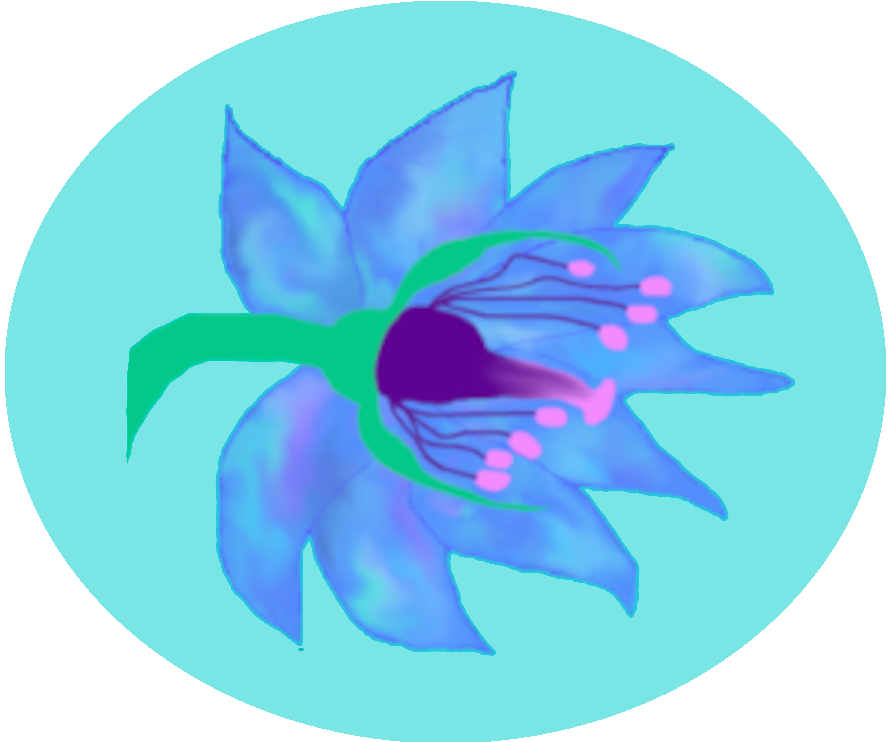Laida Mabattan
Early Life
Laida Mabattan was born in the relatively small, isolated town of Alef, in the north of Osupemlaba, to Pilac Mabattan and Oyuella Ahaowa. Her parents both worked as teachers at the local school, and though they were not wealthy, supported her as she began to develop an interest in music and writing. This happened at an early age- Laida was 7 when she started taking singing lessons and 10 when she was given her first 5-stringed violin, which would become one of her signature instruments. It was soon after this that she began to compose her own music, as well as performing these pieces for her family and community.“[Mabattan] dazzled with her intuitive understanding of all things musical. The notes flowed effortlessly from her tongue and fingers; lyrics appeared in her mind fully written, and her stylus was never far from the page… Her dedication, enthusiasm and talent were unmatched and will continue to be unmatched for quite some time.”
Career
During her years at school, Laida continued to write and perform her own music, quickly gathering a wide audience. She accepted a post at The Silver Orbit, a prestigious theatre, where she sang and played in the intervals between shows. Laida wanted more, however, and as soon as her schooling was complete and she had moved out of her parent’s home, she embarked on her first tour across the entirety of Osupemlaba. She was an immediate success. Her fame grew and grew, and soon there was no member of high society who had not heard of her.During the next few years, Laida divided her time between tours, where she sang and played the violin, and her residence in Lamras. In 2791 AL., Laida received an offer from His Majesty, King Olmeniu himself, to become her sponsor and for her to join the High Court’s musicians. She considered this a great honour and gladly accepted. With this new financial security and even greater prestige, Laida was able to dedicate herself to completing her first large work, a symphony entitled simply ‘The Night’, which she dedicated both to her new sponsor and, as was the tradition, to the Gods. ‘The Night’ was performed at the royal court and greatly lauded. It was followed by the opera ‘Visiting the Fallen Tower’, which cemented her love for writing operas, plays, and musical theatre, particularly tragedies. It was her first work to require actors, and when it premiered, she played the main role of Lia, the farmer’s daughter. From this point on, Laida wrote one show after the next, almost always appearing as one of the principal actors during the initial runs. Though not all were praised as highly as others, it was very rare that serious criticism could be found.
The Magpie
‘The Magpie’ is a 4-hour long opera/musical theatre, written in 2912 AL. and widely considered to be Laida’s magnum opus. It tells the story of a fictional village called Bûn, which is playing host to a mysterious figure, known only as ‘The Magpie’, who appears in the background of a series of murders, seemingly drawn to death. Always it seems that something is slightly off, slightly wrong about the scene, as if the victim and the perpetrator never planned to be near each other, that it is all coincidence, and yet the killer always becomes just that. These scenes are narrated from the perspective of the murderer, and each time they swear The Magpie forced their hand. After each death, the mysterious figure kneels by the fallen body and places a hand on their chest, uttering the cryptic line:“A soul that once held righteous breath here lies/ yet gone it is- away the magpie flies”They then reach into the victim’s clothes and take out a single coin, which they place into the pocket of their cloak before turning and leaving the stage. This happens multiple times throughout the story. The villagers grow increasingly scared and upset, and begin fighting among themselves, accusing each other of secretly being behind the figure of The Magpie. Old feuds and grievances between them are revealed, and acts of sabotage committed, until the audience starts to wonder whether or not these people, including the previous victims, are really so innocent after all. The Magpie starts to show up more and more frequently, yet is never caught or unmasked by the people. Until the end of the play, that is, when, in a dramatic showdown of sorts, a large group of villagers bands together to confront them. They accuse The Magpie of plotting and forcing the deaths of their fellow citizens, and planting dark thoughts into the minds of the murderers- 'stealing' their lives and their innocence.
The last words of the play are spoken by the hooded figure, and this paragraph is one of the most widely known and quoted lines of the modern day. Even a person totally unfamiliar with the story of The Magpie will be able to recognise, and often quote entirely, these lines. They have become synonymous with a dramatic ending, with theatre, and with Laida Mabattan herself. The end of The Magpie is as follows:
"You speak of fierce and cruelly twisted minds/ that by my hand have fall'n to my designs/ and, meaning not the bloodshed that they caused,/ were surely pulled unwilling to the maw/ of corrupt hearts. You say t'was I,/ in dark cloak; skin of a magpie,/ who crept behind your closéd eyes/ and swiftly stole away that treasured prize/- your inner thoughts, so clean and free of blame-/ like so many trinkets to make me worth my name./ Fools! I ask you this (and think before you speak)-/ what did I truly clutch inside my beak?/ An untouched parchment, a pristine page?/ Or was something far worse freed from its cage?/ You say I stole your lives, your minds,/ and turned your wicked deeds to mine/ but, killers, look inside your hearts and know/ that it was never truly me who struck the blows/ I do not drive a guiltless soul to hunt,/ I do not end a guiltless life in blood./ So curse my name! But understand,/ when next you vow I steered and forced your hand-/ I take but that which is already mine!/ Now late's the day- away the magpie flies!"Enraged by these words, the villagers rush towards The Magpie, who does not flinch. Instead, the figure reaches up and pulls off their hood. As they do so, they are briefly wrapped in tendrils of dark smoke, and transform into a large magpie, which flies out of the reach of the villagers' grasping hands, and off into the night.
Other Notable Works
Though, as mentioned, more than 2000 compositions by Laida Mabattan survive today, there are some that are even more well-known than others. A few of these appear below, along with their dates and (if applicable) their most famous or most quoted passages.“And now do I most clearly see/ the sight that was foretold to me/ for here beneath this starry sky/ there’s nought but beauty in thine eye.”One of the only plays not to feature Laida in a principal role- instead, she played Samna, an unlucky background figure who falls prey to the dangers of Moonglow Fever . Written in 2900 AL.
“Up and over, round about, mushroom and salt and pepper and sprout, spoon and knife and fork and tray, off to send the soup away!”
“Father, ask me not of what I see behind closed eyes,/ For my torture is a truly strange and dreadful thing:/ A tower, stricken, toppled, fallen, crumbled, broken, lies;/ and I know not what horrid doom the future now will bring./ Oh let me out into the night to seek my visions’ source!/ Although the lightning in the sky doth make the darkness day-/ I care not for the wind and rain that fly with deadly force,/ If only I behold the tow’r and know I’ve found the way!”
Personal life and death
Laida Mabattan never married, though she is rumoured to have had a romantic connection to Kuleion Fotla, another musician at the High Court. She passed away at the age of 238 at her residence in Lamras. The funeral was attended by most of the Court, including the King, and a great number of Laida's personal friends. Her memorial stone is set in the palace's Garden of Remembrance.
Style and Legacy: Most of Laida Mabattan’s texts feature iambic meters, though trochees are used too. Laida was notable for her usage of the northern dialect during performances. Many actors and musicians work to rid themselves of their natural accent, in order to appeal to a larger audience- particularly those from the northern areas, as this sound is often stereotyped as uncultured or rude. Laida, however, chose to incorporate this dialect into her songs and writing and thereby gave it a unique flavour not found in many contemporary works. This has encouraged many younger writers to do the same, and is part of the reason for a recent resurgence of accent-filled music and theatre, even in so-called ‘polite society’. Her works are studied at most schools, and are some of the most popular pieces young musicians learn to impress their peers. Stories, and even excerpts from those stories, such as ‘The Magpie’ or ‘A Starry Sky’ have permeated the cultural consciousness and influenced many writers since.
Her works have also spawned a few idioms, such as:
Remove these ads. Join the Worldbuilders Guild

















Nice read and interesting article! You seem to have really put some thougt into it with the various plays, especially like the magpie one. The fact that she is responsible for people starting to use their own accents again is also quite interesting.
Thanks for the compliments! I’m so glad you enjoyed it!